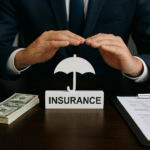
Hurricane season in Florida is a significant concern for residents and businesses alike. Understanding the risks, preparing adequately, and having the right insurance coverage can make a world of difference. This blog will provide essential tips for hurricane preparedness, along with detailed statistics for different counties in Florida regarding hurricane occurrences. Samuel Bennett, the principal agent at Island Insurance Group, offers expert advice on navigating these challenges.
Understanding the Impact of Hurricanes in Florida
Florida is no stranger to hurricanes. With its long coastline and geographical position, the state is highly susceptible to these powerful storms. Hurricane season typically runs from June 1 to November 30, peaking in August and September. During this period, Floridians must stay vigilant and prepared for potential threats.
Why Hurricane Preparedness is Crucial
Hurricanes can cause extensive damage to property and infrastructure, leading to significant financial losses. Proper preparedness not only helps mitigate these damages but also ensures the safety of residents. Key steps include creating an emergency kit, securing property, and having an evacuation plan.
Hurricane Statistics for Florida Counties
To understand the risks better, let’s delve into the hurricane statistics for different counties in Florida. These statistics highlight the frequency and impact of hurricanes, helping residents gauge their vulnerability.
Miami-Dade County
Miami-Dade County is often at the forefront of hurricane news. Known for its vibrant culture and bustling economy, this county has faced numerous hurricanes over the years.
- Average Hurricanes per Decade: 6.8
- Most Recent Major Hurricane: Hurricane Irma (2017)
- Historical Impact: Hurricanes Andrew (1992) and Irma (2017) caused significant damage, leading to extensive rebuilding efforts.
Broward County
Located just north of Miami-Dade, Broward County is another hotspot for hurricane activity.
- Average Hurricanes per Decade: 5.3
- Most Recent Major Hurricane: Hurricane Irma (2017)
- Historical Impact: Hurricane Wilma (2005) and Hurricane Irma (2017) are notable for their widespread damage and power outages.
Palm Beach County
Palm Beach County, known for its affluent communities and beautiful beaches, also faces its share of hurricanes.
- Average Hurricanes per Decade: 4.9
- Most Recent Major Hurricane: Hurricane Irma (2017)
- Historical Impact: Hurricanes Frances and Jeanne (2004) significantly affected the area, causing severe damage to properties and infrastructure.
Monroe County
Monroe County, encompassing the Florida Keys, is particularly vulnerable due to its location.
- Average Hurricanes per Decade: 7.2
- Most Recent Major Hurricane: Hurricane Irma (2017)
- Historical Impact: The Florida Keys have been hit hard by hurricanes like Hurricane Irma (2017) and Hurricane Wilma (2005), resulting in extensive evacuations and rebuilding.
Collier County
On the Gulf Coast, Collier County experiences hurricanes less frequently than the Atlantic Coast counties but remains at risk.
- Average Hurricanes per Decade: 3.8
- Most Recent Major Hurricane: Hurricane Irma (2017)
- Historical Impact: Hurricane Irma (2017) caused significant flooding and wind damage in the area.
Lee County
Lee County, home to cities like Fort Myers and Cape Coral, also sees hurricane activity.
- Average Hurricanes per Decade: 4.2
- Most Recent Major Hurricane: Hurricane Irma (2017)
- Historical Impact: Hurricanes Charley (2004) and Irma (2017) brought extensive damage, highlighting the need for robust preparedness plans.
Essential Tips for Hurricane Preparedness
Given the hurricane statistics and potential impacts, it’s crucial for Florida residents to take proactive steps in preparing for the hurricane season. Here are some essential tips:
Create an Emergency Kit
An emergency kit should include essentials like water, non-perishable food, medications, important documents, flashlights, batteries, and first-aid supplies. Having these items readily available can make a significant difference during a hurricane.
Secure Your Property
- Reinforce Windows and Doors: Use storm shutters or plywood to protect windows and doors from high winds and flying debris.
- Trim Trees and Shrubs: Regularly maintain your landscape to minimize the risk of falling branches causing damage.
- Secure Outdoor Items: Bring in outdoor furniture, decorations, and any loose items that could become projectiles in high winds.
Review Your Insurance Coverage
Ensure your home insurance policy covers hurricane damage. Flood insurance is also crucial, as hurricanes often bring heavy rains and flooding.
Develop an Evacuation Plan
Know your evacuation routes and have a plan in place for where you will go if you need to leave your home. Keep your vehicle’s gas tank full during hurricane season to avoid last-minute rushes.
Stay Informed
Monitor weather reports and updates from reliable sources such as the National Hurricane Center. Stay informed about hurricane developments and heed any evacuation orders or advisories.
The Role of Insurance in Hurricane Preparedness
Insurance plays a pivotal role in mitigating the financial impact of hurricanes. Having the right coverage ensures that you can rebuild and recover more efficiently after a storm.
Homeowners Insurance
Standard homeowners insurance typically covers wind damage but may have exclusions for flooding. It’s essential to review your policy and understand what is and isn’t covered.
Flood Insurance
Flood insurance is a separate policy that covers damages caused by flooding. Considering Florida’s vulnerability to storm surges and heavy rains, flood insurance is a critical addition to your coverage.
Business Insurance
For business owners, having adequate insurance coverage is crucial to protect against business interruptions, property damage, and loss of income due to hurricanes.
Contact Samuel Bennett for Expert Advice
Navigating insurance policies and ensuring you have the right coverage can be complex. Samuel Bennett, the principal agent at Island Insurance Group, is here to help. With extensive experience in the insurance industry, Samuel can provide personalized advice and solutions to meet your needs.
Contact Information
- Name: Samuel Bennett
- Title: Principal Agent
- Company: Island Insurance Group
- Phone: 866-820-7430 Ext 201
- Email: sam@islandinsurancegroup.com
- Website: islandinsurancegroup.com
Conclusion
Hurricane season in Florida is a time for vigilance and preparation. Understanding the risks and taking proactive steps can significantly reduce the impact of these powerful storms. By securing your property, creating an emergency kit, having a solid evacuation plan, and ensuring adequate insurance coverage, you can protect your family and assets. For expert advice and comprehensive insurance solutions, contact Samuel Bennett at Island Insurance Group. Stay safe and prepared this hurricane season.





